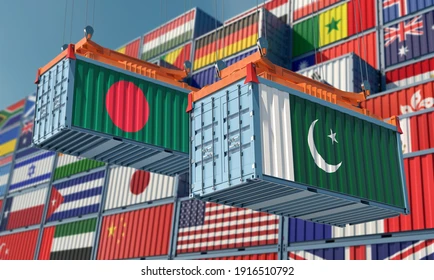Islamabad 7 August: Pakistan stands to lose its competitive edge in the U.S. market despite securing the region’s lowest tariff rate of 19% on its exports, warned Atif Ikram Sheikh, President of the Federation of Pakistan Chambers of Commerce and Industry (FPCCI), on Thursday.
The favorable rate, lower than the 20–25% imposed on regional competitors like Bangladesh, Vietnam, and Sri Lanka, and far below the 50% tariff slapped on India following U.S. President Donald Trump’s executive order on Wednesday, offers Pakistan a unique opportunity. However, soaring energy costs and production inefficiencies threaten to undermine this advantage, Sheikh cautioned.
In a statement, Sheikh urged the government to capitalize on the low tariffs, emphasizing that high electricity and gas prices, coupled with heavy taxation, are major barriers to boosting exports. “Pakistan’s production costs are significantly higher than those of regional competitors, which could negate the benefits of the reduced tariff,” he said. He highlighted the potential for a surge in textile exports to the U.S., Pakistan’s largest trade partner, if the government acts swiftly to lower energy costs for industries.
The tariff advantage comes alongside a landmark deal between Pakistan and the U.S. to develop the South Asian nation’s oil reserves, announced by Trump on social media. “We have just concluded a Deal with the Country of Pakistan, whereby Pakistan and the United States will work together on developing their massive Oil Reserves,” Trump wrote. Finance Minister Muhammad Aurangzeb, who spearheaded the negotiations, described the agreement as part of a broader economic and strategic partnership with Washington.
READ MORE: Minimum Taxes Essential to Attract Local, Foreign Investment: FCCI President
Sheikh called the low tariff a “golden opportunity” for Pakistan’s export sector, particularly textiles, which could see significant growth with reduced production costs. He stressed the need for investment-friendly policies, including single-digit interest rates, sustainable reforms, and long-term planning to attract foreign direct investment (FDI). “A conducive environment for FDI is critical to sustaining this advantage,” he said, urging immediate action to address systemic challenges.
The U.S. tariff reduction contrasts sharply with the steep 50% tariff imposed on India, driven by tensions over New Delhi’s Russian oil imports. As Pakistan navigates this favorable trade landscape, experts warn that without urgent reforms to address energy costs and inefficiencies, the country risks squandering a critical opportunity to boost its economy and global market share.









